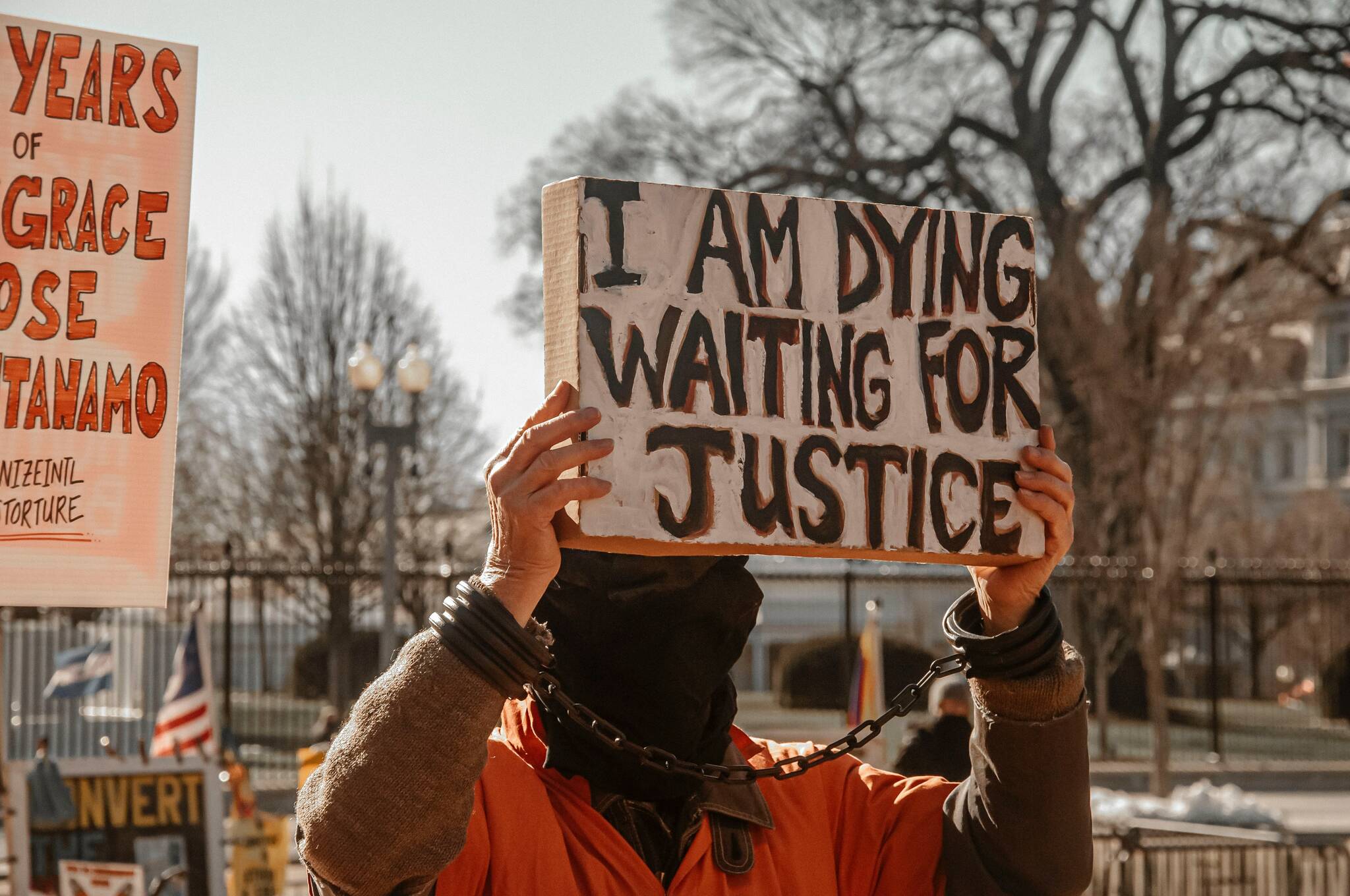By Craig Wilson
The military prison in Guantanamo Bay, Cuba, was opened to detain individuals suspected of links to the 9/11 attacks and keep them beyond the reach of U.S. law under a policy of indefinite law of war detention. We even made up a new name for these detainees — “unlawful enemy combatants” — to deny them the protections of the laws of war. Between January 2002 and March 2008, the United States shipped 780 individuals from 49 nations, ranging in age from 13 to 89, to Guantanamo Bay. Many were senior al-Qaeda or Taliban members while others were cases of mistaken identity or simply people in the wrong place at the wrong time. Most had nothing to do with the 9/11 attacks. All were subject to torture. Less than 1 in 20 were ever charged with crimes and most were ultimately released, 500 under the Bush and 200 under the Obama administrations. 39 remain at Guantanamo.
It’s time to resolve the fates of these detainees, close the prison, and end the policy of indefinite detention. The prison costs $540 million per year to operate (roughly $14 million per detainee per year), making Guantanamo the most expensive prison on earth. Of the remaining detainees:
■ 2 have been convicted of terrorism-related charges.
■ 10 have been charged with war crimes and await trial.
■ 27 have never been charged and never will be.
The 2 convicted detainees should be transferred to a federal prison or repatriated to their home country for incarceration.
The 10 detainees facing charges are being tried by a failed military commission process. The largest trial, against five detainees including 9/11 mastermind Khalid Sheikh Mohammed and 9/11 facilitator Ramzi bin-al-Shibh, was filed in 2011 but hasn’t even started, because any trial would require acknowledgment of their torture and the lack of accountability for it.
The CIA tortured detainees in secret prisons before their arrival at Guantanamo and the military continued the abuse. Detainees suffered sleep deprivation, extended solitary confinement, light and sound manipulation, exposure to extreme temperatures, sexual harassment, threats of rape, threats with dogs, physical beatings, “stress positions,” and religious abuse. These actions violated both U.S. and international law, but the officials who planned and oversaw these actions have never been held accountable. Majid Khan, who cooperated with U.S. authorities and plead guilty under a plea deal in 2012, testified in court about his treatment by the CIA, including being held naked, chained, and subjected to “rectal feeding.” The court agreed to the minimum sentence in the case, but seven of the eight jurors wrote the government urging clemency, noting that Khan “has been held without the basic due process under the U.S. Constitution” and calling the treatment of Khan “closer to torture performed by the most abusive regimes in modern history.”
These 10 detainees should be charged and tried under our regular justice system. If convicted they can spend their remaining time in federal prison. Those who are not convicted or are given sentences less than time already served should be sent to their home countries.
Of the 27 uncharged detainees, 17 are categorized as “too dangerous to release” based upon past history, affiliations, or skill sets when they were captured twenty years ago. These men have aged (the oldest is 73 years old and has suffered multiple heart attacks) and some of them have serious medical and psychological conditions stemming from their torture in U.S. custody. If there are grounds to bring charges after all this time in custody, charge them. If not, repatriate or resettle them in another country.
Our indefinite detention of uncharged men in an offshore prison is a standing invitation to other countries to act similarly and provides an easy response for world leaders criticized by the United States for their own human rights records. Their plight has been featured in propaganda by al-Qaeda and other non-state armed groups seeking to recruit new members and is also used against us by China.
The Guantanamo prison and the policy of indefinite detention without charge stands as an enduring symbol of discriminatory law enforcement, Islamophobia and flagrant disregard for international human rights. It’s time to end the policy and close the prison.
• Craig Wilson is president for Veterans for Peace, Chapter 100. This piece was submitted on behalf of the chapter. Columns, My Turns and Letters to the Editor represent the view of the author, not the view of the Juneau Empire. Have something to say? Here’s how to submit a My Turn or letter.

